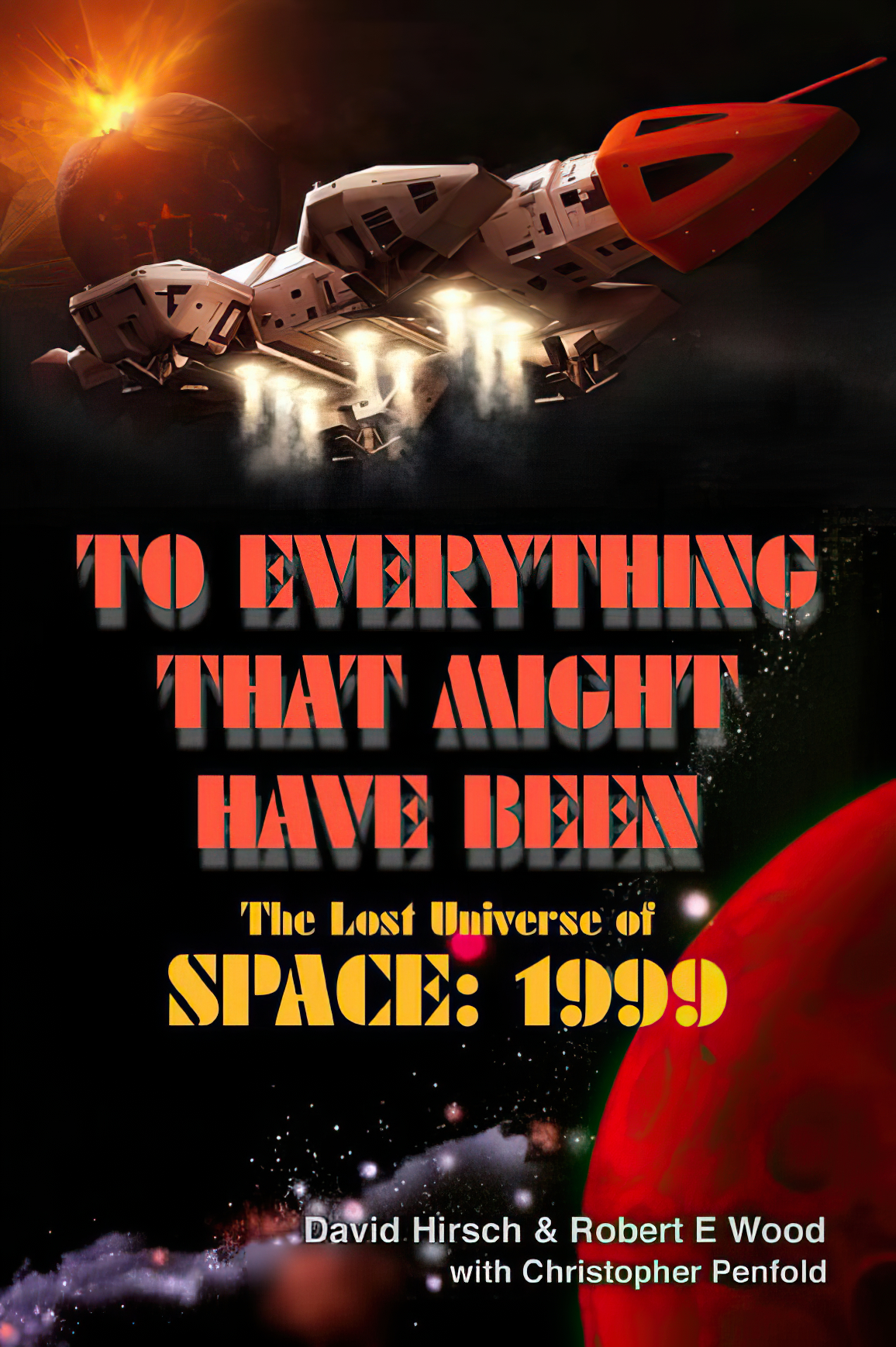 Story: Using production documentation, correspondence both formal and informal, never-filmed scripts (or summaries thereof), and other material – to say nothing of the memories of former story editor Christopher Penfold – the authors examine the many twists and turns that the sci-fi TV series Space: 1999 could have taken, but didn’t, from its origins as the second season of UFO to abandoned spinoff plans.
Story: Using production documentation, correspondence both formal and informal, never-filmed scripts (or summaries thereof), and other material – to say nothing of the memories of former story editor Christopher Penfold – the authors examine the many twists and turns that the sci-fi TV series Space: 1999 could have taken, but didn’t, from its origins as the second season of UFO to abandoned spinoff plans.
Review: You may or may not have noticed that I’m heavily involved with the writing and production of a daily sci-fi history podcast called Sci-Fi 5, now in its third year as I write this review. And even before that, I was doing my own sci-fi history thing here at theLogBook. Show me a book that has scads of exact dates (gleaned from correspondence) of things that happened in the history of a much-loved show, and that’s pretty much catnip to me.
For Space: 1999 fans who also find that idea intriguing, this is that book. The authors – through a collection of correspondence from sources like the late Martin Landau’s personal collection that they acquired – the authors do a magnificent job of not just chronicling that there were roads not taken, but pinning down the exact dates of those roads not being taken. Want to know when D.C. Fontana pitched herself as a potential story editor for Space: 1999? It’s in here. (It’s a tragedy she wasn’t hired, as that would have improved the series immeasurably; the book also reveals that the makers of Space: 1999 opted instead to offer the story editor post to Gene Roddenberry, who turned it down on the grounds that he was a creator of shows, not middle-management on other people’s shows.)
The Roddenberry/Star Trek connection is absolutely fascinating because we also learn how (and, again, when) Roddenberry was asked to recommend some of Star Trek’s best writers as potential contributors to Space: 1999. Star Trek becomes a bit of an elephant in the room for Gerry Anderson’s then-upcoming sci-fi series; people who worked on it are courted by Space: 1999 and, for the most part, turn it down. (Personal opinion: if they’d hired Dorothy Fontana, I think it would’ve been much easier for them to get ex-Trek writers on this show. Truly, if there’s one critical turning point or mistake to point to where Anderson & co. instantly alienated the writers who worked on the previous show, that was the moment in question.) The early casting notes specifically say the commander should be “someone like William Shatner”. And finally, with the recent passage of the Prime Time Access Rule in the United States, which compelled television stations to put non-network programming in the hour prior to network-programmed prime time, Space: 1999 was very much deliberately being aimed at that time slot that many U.S. stations were filling with Star Trek repeats in the 1970s. ITC desperately wanted something – some writers’ names, Roddenberry’s name attached to the show – that would attract that audience. And they never got it.
There are other roads not traveled here, however, including a formulation of the series where, rather than the cooperative, multi-ethnic crew that we saw in the first season (another thing consciously patterned after Star Trek), Moonbase Alpha would’ve been populated by a paranoid populace of shut-ins forever at each other’s throats. Thankfully that idea was abandoned very early on. Would it have provided a crucible for drama? Oh, sure. Would it have been drama that anyone wanted to immerse themselves in with the Vietnam War and civil rights struggles still in the news? That seems doubtful. The unused scripts and story treatments range from intriguing to dreadful, though these get much more space and detail in the authors’ follow-up volume, Maybe There: The Lost Stories From Space: 1999.
Would Space: 1999 have been better as “UFO 2” or “UFO: 1999”? Would it have been better with a pressure-cooker environment driving its characters’ behavior? Would it have been better with Robert Culp as the star? Would a Catherine-Schell-led spinoff or third season have been viable? The authors, for the most part, leave these judgements to the reader, while gently noting that the show we did get is still being talked about (and written about) in the 21st century, and they’ve got a point there. Christopher Penfold, chiming in from his vantage point as the story editor on Space: 1999, also tends to agree with that assessment. The notes, documents, and dates are fascinating stuff; the opportunity to consider where the show could have gone, but didn’t, is tantalizing. Very much recommended to fans of this particular show, and students of the things that make (or fail to make) a TV series successful.
Year: March 16, 2022
Authors: David Hirsch, Robert E. Wood, Christopher Penfold
Publisher: Telos
Pages: 326

No Responses